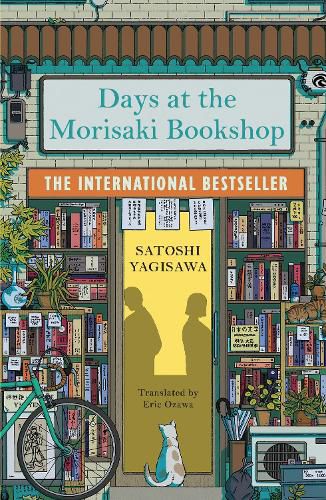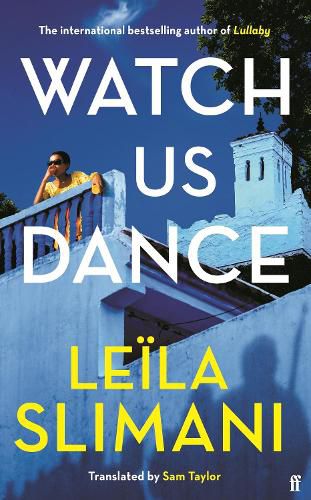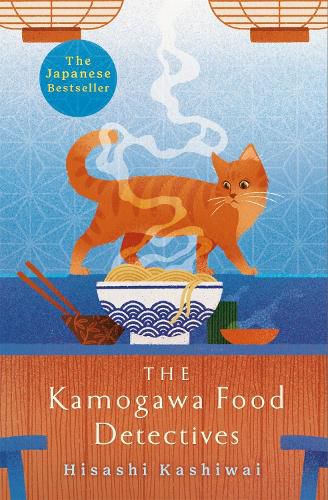This month we're reading fiction translated from Japanese, French, Norwegian, Korean & Italian.
Days at the Morisaki Bookshop by Satoshi Yagisawa (translated from Japanese by Eric Ozawa)
Hidden in Jimbocho, Tokyo is a booklover's paradise. On a quiet corner in an old wooden building lies a shop filled with hundreds of second-hand books. Twenty-five-year-old Takako has never liked reading, although the Morisaki bookshop has been in her family for three generations. It is the pride and joy of her uncle Satoru, who has devoted his life to the bookshop since his wife Momoko left him five years earlier.
When Takako's boyfriend reveals he's marrying someone else, she reluctantly accepts her eccentric uncle's offer to live rent-free in the tiny room above the shop. Hoping to nurse her broken heart in peace, Takako is surprised to encounter new worlds within the stacks of books lining the Morisaki bookshop.
Watch Us Dance by Leïla Slimani (translated from French by Sam Taylor)
As she stands at the window, the spring sunshine streaming in, Mathilde reflects on the opportunities before her: it’s April 1968 and Morocco is changing. Looking out at her garden, the roses - brought in from Marrakech - have bloomed and their sweet, fresh scent pervades the garden. The world is opening up and anything feels possible. Work on the pool has just begun and she imagines diving in to cool off from the summer’s baking heat.
Indecency. That’s her husband’s word for it, the flagrant display of their glittering success, on show for their labourers to wonder at. But Mathilde has prevailed. Times have changed, and she is determined to celebrate it.
Only Mathilde is blissfully unaware of the consequences for her family, her country and its future. Her babies are now grown up, and they are all about to learn how life can take wild and unexpected turns.
The Premonition by Banana Yoshimoto (translated from Japanese by Asa Yoneda)
Yayoi lives with her perfect, loving family - something 'like you'd see in a Spielberg movie'. But while her parents tell happy stories of her childhood, she is increasingly haunted by the sense that she's forgotten something important about her past. Deciding to take a break, she goes to stay with her mysterious but beloved aunt Yukino, whose strange behaviour includes waking Yayoi at two in the morning to be her drinking companion, watching Friday the 13th repeatedly and throwing away all the things she wants to forget. Living a life without order, Yukino seems to be protecting herself, but beneath this facade Yayoi starts to recover lost memories, and everything she knows about her past threatens to change forever.
The Wolves of Eternity by Karl Ove Knausgaard (translated from Norwegian by Martin Aitken)
It's 1986 and a nuclear reactor has exploded in Chernobyl. Syvert L yning returns home from military service to live with his mother and brother on the outskirts of a town in Southern Norway. One night, he dreams of his late father, and can't shake him from his mind. Searching through his father's belongings for clues and connections, he finds a cache of letters that lead to the Soviet Union.
In present-day Russia, Alevtina is trying to balance work and family. She has always sought the answers to life's big questions, but is preoccupied with care of her young son. Her friend Vasilisa offers some nourishment- she is writing a book about an ancient feature of Russian culture, the belief in eternal life. Meantime, Alevtina is heading towards a meeting that will redraw the contours of her world.
Another Person by Kang Hwagil (translated from Korean by Clare Richards)
Vacuum cleaner bitch. When Jina sees this anonymous comment on a forum it forces her out of her stupor. It is posted on a website dissecting her public allegations of workplace sexual assault, the backlash to which forced her to quit her job. She has spent months glued to her laptop screen, junk-food packaging piling up around her, tracking the hate campaign that’s raging against her online. This post stands out from the noise, for it could only have been made by someone who knew her as a student at university.
The comment stirs something deeply repressed. So Jina returns to Anjin University, and to the toxic culture that destroyed the lives of many female students including one, Ha Yuri, who died tragically and mysteriously not long before Jina left. Somewhere within Jina’s memories is the truth about what happened to Yuri all those years ago.
The Goodbye Cat by Hiro Arikawa (translated from Japanese by Philip Gabriel)
Against changing seasons in Japan, seven cats weave their way through their owners' lives. A needy kitten rescued from the recycling bin teaches a new father how to parent his own human baby; a colony of wild cats on a holiday island shows a young boy not to stand in nature's way; a family is perplexed by their cat's devotion to their charismatic but uncaring father; a woman curses how her cat constantly visits her at night; and an elderly cat, Kota, hatches a plan to pass into the next world as a spirit so that he and his owner may be together for ever.
Bursting with empathy and love, The Goodbye Cat explores the unstoppable cycle of life as we see how the steadiness and devotion of a well-loved cat never lets us down. A huge bestseller in Japan, every page is a joyous celebration of cats and how we cannot resist sharing our lives with them.
Roman Stories by Jhumpa Lahiri (translated from Italian by Jhumpa Lahiri & Todd Portnowitz)
From the internationally bestselling, Pulitzer Prize-winning author of Interpreter of Maladies comes an exquisitely crafted work of fiction. Jhumpa Lahiri sets her gaze on the eternally beautiful city, illuminating the frailties of the human condition and dissecting lives lived on the margins.
A man recalls a summer party that awakens an alternative version of himself. A couple haunted by a tragic loss return to seek consolation. An outsider family is pushed out of the block in which they hoped to settle. A set of steps in a Roman neighbourhood connects the daily lives of the city's myriad inhabitants. This is an evocative fresco of Rome, the most alluring character of all: contradictory, in constant transformation and a home to those who know they can't fully belong but choose it anyway.
The Forest Brims Over by Maru Ayase (translated from Japanese by Haydn Trowell)
Nowatari Rui has long been the subject of her husband's novels, depicted as a pure woman who takes great pleasure in sex. With her privacy and identity continually stripped away, she has come to be seen by society first and foremost as the inspiration for her husband's art. When a decade's worth of frustrations reaches its boiling point, Rui consumes a bowl of seeds, and buds and roots begin to sprout all over her body. Instead of taking her to a hospital, her husband keeps her in an aquaterrarium, set to compose a new novel based on this unsettling experience. But Rui breaks away from her husband by growing into a forest - and in time, she takes over the entire city.
As fantasy and reality bleed together, The Forest Brims Over challenges unconscious gender biases and explores the boundaries between art and exploitation - muse abuse - in the literary world.
Beyond the Door of No Return by David Diop (translated from French by Sam Taylor)
The Door of No Return, on the island of Goree off the coast of Senegal, is where millions of Africans last touched their home continent's soil, before they were transported to slavery in the Americas. When French naturalist Michel Adanson travels to Senegal in 1749, he hears the story of a woman who passed through the door... but then returned. He begins to search for this fabled woman, and soon his search becomes an obsession that leads him on a desperate journey through a land torn apart by slavery.
Set against the backdrop of the Age of Enlightenment and the Atlantic Slave Trade, Beyond the Door of No Return is a thrillingly subversive story of romance and adventure.
The Kamogawa Food Detectives by Hisashi Kashiwai (translated from Japanese by Jesse Kirkwood)
Down a quiet backstreet in Kyoto exists a very special restaurant called the Kamogawa Diner run by Koishi Kamogawa and her father Nagare. Customers who can find the hidden diner are treated to an extravagant meal, but it's not the main reason for visiting . . .
The father-daughter duo have started advertising their services as 'food detectives', capable of recreating a dish from their customers' pasts that may well hold the key to forgotten memories and ongoing happiness. From the widower looking for a specific noodle dish that his wife used to cook to a first love's beef stew, the restaurant of lost recipes provides a link to the past and a way to a more contented future.











